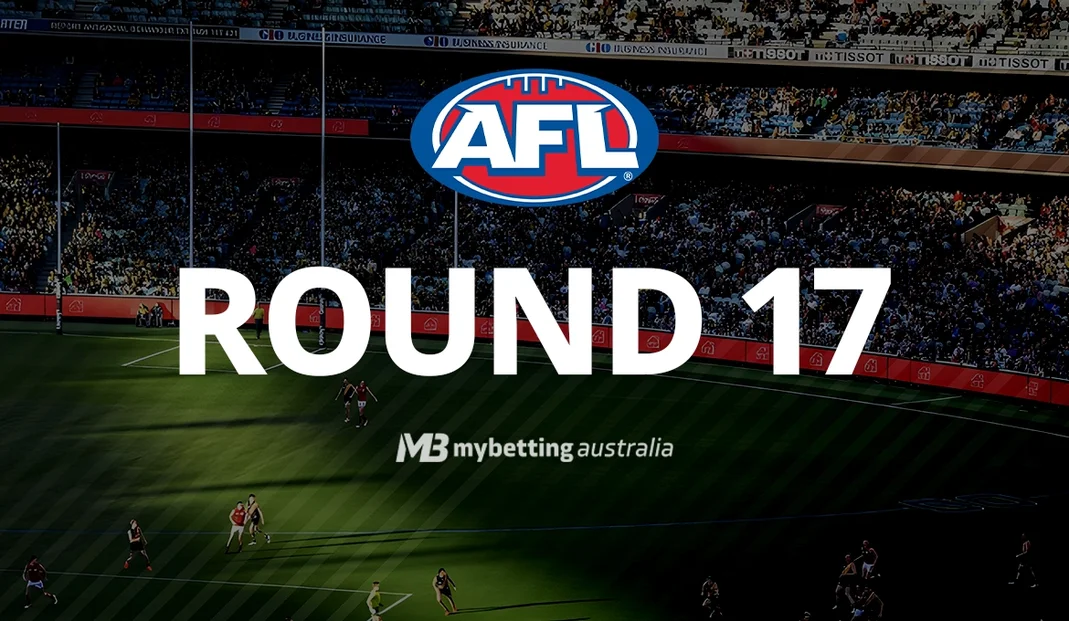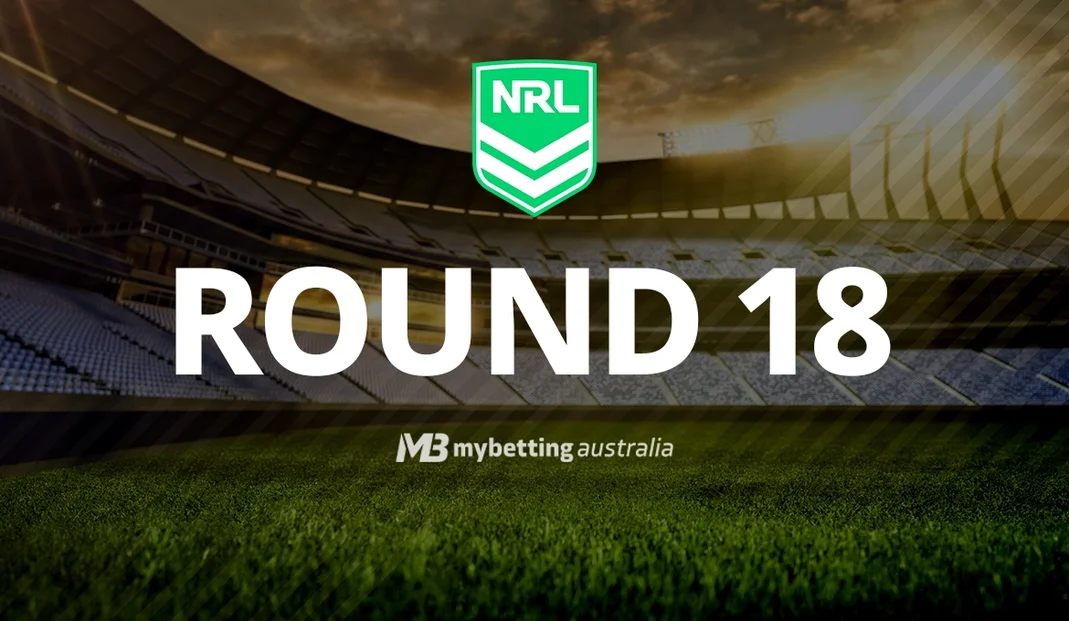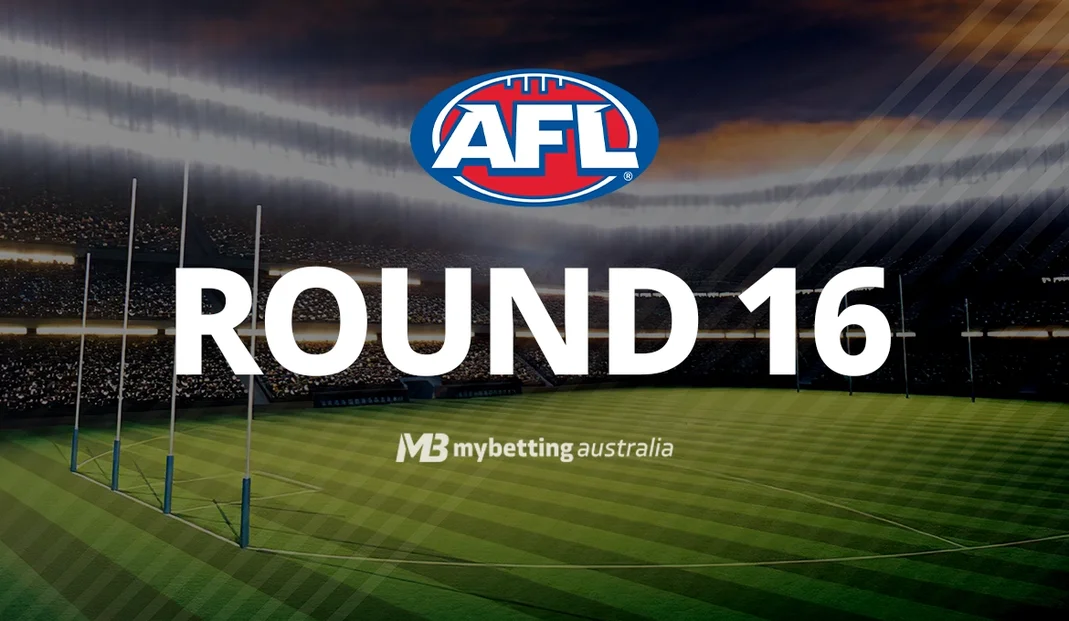
Australian Betting Tips and Predictions for July 2025

Here at MyBettingAustralia, we are your number 1 source for free best bets for today across various sports in Australia and overseas. Our daily betting tips have you covered if you like to bet on the AFL, NRL, NBA, EPL, Horse Racing, BBL, State of Origin (SOO) and Multi Bets. We will help you make better decisions!
Get the very best daily betting tips and best bets in sports today from our expert tipsters. We’re here to help you back a winner or two!

AFL 2025 Best Tips and Multi Bet of the Weekend | Round 17
There are a few interesting clashes this round, with a lot of teams near the top of the ladder taking on teams near the bottom. Will there be a raft of blowouts this round? Only time will tell! I have put together my AFL multi bets for Round 17.

AFL 2025 Round 17 – Betting tips & Predictions
The AFL returns for Round 17! We have put together our best AFL predictions and tips for every game in Round 17 just for you. See our best AFL tips for Round 17 right here.

NRL 2025 Best Tips and Multi Bet of the Weekend | Round 18
Looking for the best NRL multi this week? Check out our $10.65 play featuring the Bulldogs, Raiders, and Cowboys in Round 18.

NRL 2025 Round 18 – Betting tips & Predictions
Ready for Round 18? Here’s our breakdown of every NRL fixture this weekend, complete with three betting tips for each.
Most Recent
Best Multibet Tips of the Weekend | 28/06/25
Searching for some racing tips on Saturday? Only Racing Australia has you covered with a cheeky multi bet at Caulfield, Eagle Farm and Rosehill.
Saturday Racing Tips - Caulfield 28/06/2025
The Saturday racing continues at Caulfield and we have you sorted with some free tips to help you make some profit at Aussie bookies.
NRL 2025 Best Tips and Multi Bet of the Weekend | Round 17
Thinking about an NRL multi this week? We’ve got you covered with a $17.38 shot featuring the Sea Eagles, Knights, and Warriors in Round 17.
AFL 2025 Best Tips and Multi Bet of the Weekend | Round 16
We are treated to some interesting clashes in Round 16, which kicks off on Thursday. A lot of the games this round see top-eight teams against those who aren't. Are we about to see several lopsided affairs? I have put together my AFL multi bets for Round 16.
AFL 2025 Round 16 – Betting tips & Predictions
The AFL returns for Round 16! We have put together our best AFL predictions and tips for every game in Round 16 just for you. See our best AFL tips for Round 16 right here.

NBA 2024/25 Multi bet of the Weekend | June 23
Our NBA Final Game 7 Same Game Multi backs SGA to go for 30+ points, T.J. McConnell to keep up his strong play with 8+ points, and Pascal Siakam to score 18+.

NBA Final Game 7 2024/2025 Expert Tips and Best Bets | June 23
Our best bets point to OKC becoming Champions, the two teams putting the ball in the basket consistently, and Jalen Williams grabbing 5+ boards.

NBA Final Game 6 2024/2025 Expert Tips and Best Bets | June 20
Our best bets look for OKC to close out the series in Indiana, the two sides to go under 221.5 points, and Alex Caruso to get 2+ steals.

NBA Game 6 2024/25 Multi bet| June 20
Today’s NBA Game 6 Same Game Multi aims for SGA to score 30 or more, Chet Holmgren to pull down 10+ rebounds, and Aaron Nesmith to hit two or more from deep.
Our 2025 EPL Tips and Predictions
The EPL tips and best soccer bets for today section at MBA provides coverage of the latest matches from arguably the best Soccer league in the world. We’ll give you best bets EPL today that will have predictions and tips to follow. Our team studies both team form and player performance to determine which bets will most likely lead to victories.

EPL 2024/25 Multi Bet of the Weekend | Matchweek 38
Check out our EPL multi for the weekend’s action, with tips on games involving multiple teams in the Champions League hunt including Newcastle and Aston Villa.

EPL 2024/25 Preview & Betting Tips: Matchday 38
Take a look at our previews of all ten games set to take place across Matchweek 38 of the English Premier League, as well as our best bets for each game.

EPL 2024/25 Multi Bet of the Weekend | Matchweek 37
Check out our EPL multi for the weekend’s action, with tips on games involving multiple teams in the Champions League hunt including Arsenal, Newcastle and Aston Villa.

EPL 2024/25 Preview & Betting Tips: Matchday 37
Take a look at our previews of all ten games set to take place across Matchweek 37 of the English Premier League, as well as our best bets for each game.
Our 2025 AFL Tips and Predictions
AFL tips at MyBettingAustralia offer a full preview of the weekend action that includes all the important details about player performances and betting opportunities that matter the most. Team evaluation combined with injury status analysis and a tactical approach is what you can expect from our AFL betting tips. Keep up with the AFL and get the best multi bets today with us!

AFL 2025 Best Tips and Multi Bet of the Weekend | Round 17
There are a few interesting clashes this round, with a lot of teams near the top of the ladder taking on teams near the bottom. Will there be a raft of blowouts this round? Only time will tell! I have put together my AFL multi bets for Round 17.

AFL 2025 Round 17 – Betting tips & Predictions
The AFL returns for Round 17! We have put together our best AFL predictions and tips for every game in Round 17 just for you. See our best AFL tips for Round 17 right here.

AFL 2025 Best Tips and Multi Bet of the Weekend | Round 16
We are treated to some interesting clashes in Round 16, which kicks off on Thursday. A lot of the games this round see top-eight teams against those who aren't. Are we about to see several lopsided affairs? I have put together my AFL multi bets for Round 16.

AFL 2025 Round 16 – Betting tips & Predictions
The AFL returns for Round 16! We have put together our best AFL predictions and tips for every game in Round 16 just for you. See our best AFL tips for Round 16 right here.
Our 2025 NRL Tips and Predictions
You can access the latest NRL tips at MyBetting Australia. We include both head-to-head and handicap predictions as well as anytime/first try scorer expectations. The team statistics and recent performance outcomes provide crucial direction for our betting decisions at top NRL Betting Sites.

NRL 2025 Best Tips and Multi Bet of the Weekend | Round 18
Looking for the best NRL multi this week? Check out our $10.65 play featuring the Bulldogs, Raiders, and Cowboys in Round 18.

NRL 2025 Round 18 – Betting tips & Predictions
Ready for Round 18? Here’s our breakdown of every NRL fixture this weekend, complete with three betting tips for each.

NRL 2025 Best Tips and Multi Bet of the Weekend | Round 17
Thinking about an NRL multi this week? We’ve got you covered with a $17.38 shot featuring the Sea Eagles, Knights, and Warriors in Round 17.

NRL 2025 Round 17 – Betting tips & Predictions
Want the best NRL tips for Round 17? We’ve got you covered with a full breakdown of all eight games, backed by the latest odds.
Our 2025 Horse Racing Tips and Predictions
Get your horse racing tips for the best horse bets today with detailed previews about races and jockey evaluations and track information included at our site. The daily racing tips process at MBA focuses on identifying key value runners around the top meetings of the day in Australia. We also like to find you some value / roughies that we believe can run well.

Best Multibet Tips of the Weekend | 28/06/25
Searching for some racing tips on Saturday? Only Racing Australia has you covered with a cheeky multi bet at Caulfield, Eagle Farm and Rosehill.

Saturday Racing Tips - Caulfield 28/06/2025
The Saturday racing continues at Caulfield and we have you sorted with some free tips to help you make some profit at Aussie bookies.

Best Multibet Tips of the Weekend | 21/06/25
At Flemington, Randwick and Morphettville, we have you sorted with a horse racing multi for Saturday's action.

Saturday Racing Tips - Randwick 21/06/2025
If you're heading to the Randwick track on Saturday, enjoy some free tips from our team of expert tipsters.
Our 2025 Multi Tips and Predictions
Our platform enables you to boost your earnings by merging bets between multiple sports competitions and different contests. We always try to suggest high-value betting combinations that offer multiple betting opportunities.

AFL 2025 Best Tips and Multi Bet of the Weekend | Round 17
There are a few interesting clashes this round, with a lot of teams near the top of the ladder taking on teams near the bottom. Will there be a raft of blowouts this round? Only time will tell! I have put together my AFL multi bets for Round 17.

NRL 2025 Best Tips and Multi Bet of the Weekend | Round 18
Looking for the best NRL multi this week? Check out our $10.65 play featuring the Bulldogs, Raiders, and Cowboys in Round 18.

Best Multibet Tips of the Weekend | 28/06/25
Searching for some racing tips on Saturday? Only Racing Australia has you covered with a cheeky multi bet at Caulfield, Eagle Farm and Rosehill.

NRL 2025 Best Tips and Multi Bet of the Weekend | Round 17
Thinking about an NRL multi this week? We’ve got you covered with a $17.38 shot featuring the Sea Eagles, Knights, and Warriors in Round 17.
Our 2025 SOO Tips and Predictions
State of Origin is truly massive in Australia, especially in QLD and NSW (of course). Those who support SOO can access our predictions regarding the highly anticipated upcoming series as well as a preview of player performances. The analysis provided by experts covers every State of Origin match - every year. When the Maroons and Blues are about to face off, make sure you check the SOO Tips at MyBettingAustralia.

State of Origin 2025 – Betting tips & Predictions
Is the series going to get decided after State of Origin Game 2? We give our Queensland vs New South Wales expert predictions and betting tips.
Our 2025 BBL Tips and Predictions
The BBL is the best T20 league that Australia has to offer and many International players travel down under just to play in the tournament. So best bets in sports today always have to factor in the BBL. We preview all the big games in our BBL tips during the regular season and finals. We’ll give you an analysis of the team’s form, player performance, trends to be aware of and more!
Why Trust MyBettingAustralia
Comprehensive Coverage
MyBettingAustralia aims to please thorough today's best bets and tips for both Australian sports including AFL and NRL and international contests such as Premier League and NBA. Experts at MBA analyse multiple sports and betting markets to supply you with the best bets for today that lead you towards better betting outcomes.
Daily Updates
Our site delivers the best sports bets today for all major & popular sports around the globe. Our betting tips derive from current news updates and assessments of team injuries and player availability, for example.
Expert Analysis
Our best daily betting tips derive support from detailed research aimed at producing expert analysis from our team. We combine team form research with player statistics as well as historical data and betting tendency analysis to create the best betting predictions.
Live Streaming - Sports & Racing

Australian sports fans benefit from expanded viewing opportunities because bookmakers now deliver mobile phone / desktop computer streaming options for real-time sports betting. How good is that!
I think punters in Australia should choose Bet365 and Unibet to watch multiple sports and racing broadcasts. These streaming services make it possible to watch live sports or race that take place all around the world. You could match a random Tennis match from Europe, for example. Betr along with Dabble are great bookmakers that provide horse racing live streaming options to Aussies too. Ideal for combining with the Horse Racing Tips that we provide.
You can stay updated about each game and race as well as exciting plays without needing to visit a local pub, watch on Kayo or Foxtel, because you can follow on your phone at any time.
1
New Betting Site
2
New Betting Site
Promo code: MYBETTING100
AUS Licensed
AUS Licensed
3
Mobile Best
4
New Betting Site
5
New Betting Site
6
7
New Betting Site
8
9
LAUNCHED in 2020
10
TRENDING NOW
11
New Betting Site
12
New Betting Site
13
New Betting Site
14
New Betting Site
15
Racing Pick
16
New Betting Site
Promo code: MYBETTING100
AUS Licensed
AUS Licensed
17
New Betting Site
18
New Betting Site
19
New Betting Site
Promo code: MYBETTING100
AUS Licensed
AUS Licensed
20
New Betting Site
Promo code: MYBETTING100
AUS Licensed
AUS Licensed
21
22
Fantasy Best
AUS Licensed
23
24
LAUNCHED in 2022
25
Launched in 2021
26
New Betting Site
.svg)





































